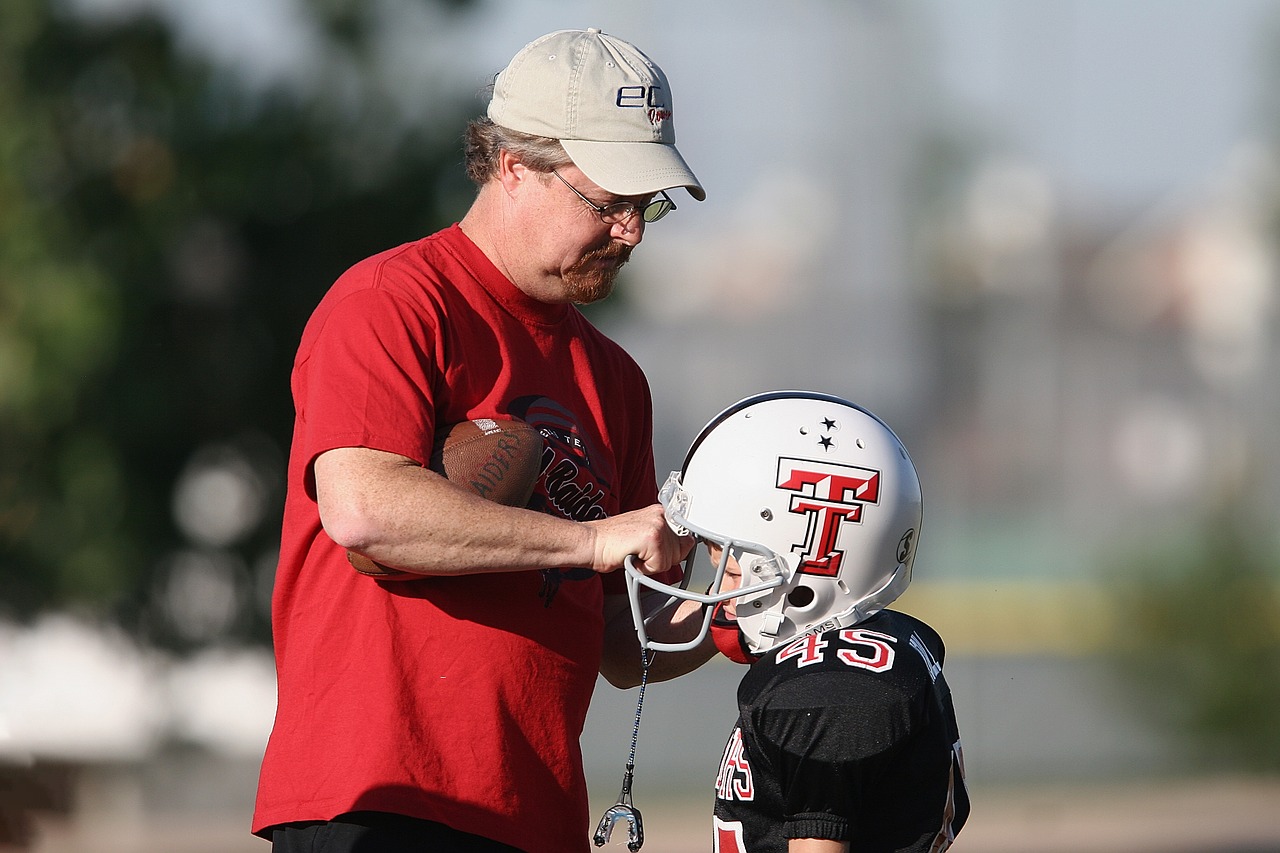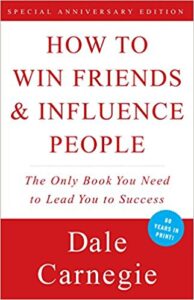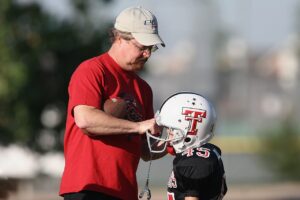
The Success is in the Struggle
Back in my graduate school days, I did some personal training at a gym not far from campus. My days were filled with work in the human performance lab and varsity weight rooms, but I felt like it was really important that I continued to train general fitness clients to become more proficient in that demographic – and help pay the bills.
Like most guys in my early 20s, I thought I had life all figured out. A few months in, my boss informed me that I was due for a performance review. She also mentioned that they were deviating from the “norm” a bit, and that my sit-down meeting would not be with her, but rather, with one of the more experienced trainers, Kris. I didn’t really think anything of it, and the meeting was scheduled for the following week.
Looking back, that meeting was profoundly impactful for me, even if I didn’t fully grasp just how important it was at the time.
Kris first complimented me on what I did well: work ethic, passion, attention to detail, coaching, and book smarts. Looking back, it was a perfect Dale Carnegie approach before I’d ever even read How to Win Friends and Influence People. Eventually, though, the conversation delved into the topic of empathy; she asked me what I thought most of my clients really wanted to get out of their personal training with me.
Here I was, a 22-year-old aspiring powerlifter who thought the world was out to train for a 600lb deadlift and get to 200 pounds at 6% body fat. My most loyal client, though, was a 68-year-old accountant who just didn’t want his neck and shoulder to hurt when he worked out and picked up his grandkids. Another was an elderly woman who was far more concerned about her risk of osteoporosis than her vertical jump.
That day, without telling me I sucked at relating to my clients, Kris taught me a ton about empathy and separating myself from personal biases. She just tactfully challenged me with a simple question. It wasn’t much different than the “guided discovery” approach we use with young athletes when we walk them into a little technique failure so that they can appreciate the wrong pattern.
“Where did you feel that?”
“Can you stop rowing when your elbow hits my hand?”
“See how your nose got to the floor before your chest on that push-up? Can you switch that up?”
Kris saw exactly what I needed to become a better coach, and she delivered the message perfectly. In hindsight, that lesson in empathy and separating myself from personal biases probably made a huge difference in enabling me to be successful in training baseball players even though I wasn’t a baseball player past eighth grade. I had to do a lot more listening and ask a lot more questions. Kris understood this all too well – and modeled it, too: she’d had clients for over a decade!
That was 2003. Now, 14 years later, Kris and I are still good friends. She sent us gifts when our twins were born. I help out with training her son, an up-and-coming pitcher. Of any of my co-workers at that time, she challenged me the most – and she’s the only one with whom I really keep in touch. How is that for impactful?
I actually reached out to her before posting this blog, and her response included the following:
“I remember this conversation well. I dreaded giving this performance review! I remember thinking that I knew how smart you were (probably smarter than I) and I knew that this trainer job was ultimately not your end point. I wanted to make sure you knew how valuable your knowledge was when applied correctly. How do you tell someone their delivery is not as sensitive as it needs to be??
“I’m so glad that I succeeded in my message and that this lesson has stayed with you. I am honored that you, who I respect immensely, learned something from me. You never really know how much you can impact a person’s behavior and thought process.”
Now, imagine she’d never spoken up. Or, even worse, if she had – but I wasn’t ready to accept that constructive criticism. I wouldn’t be the coach (or person) I am today. This is why we should be massively grateful to those who not only have constructive criticism to offer, but choose to provide it with the correct approach.
When it really comes down to it, people struggle or fail to improve for one of three reasons.
a) They don’t know what they’re doing incorrectly.
b) They don’t have actionable strategies to address these issues; don’t understand how to employ these strategies; or haven’t had enough consistency or success with these strategies.
c) They aren’t willing to change.
In terms of A, it’s important to challenge people tactfully and make them aware of their blind spots. Particularly in the youth sports realm, this is getting to be a very dicey situation. Many kids think they have it all figured out, and more concerning, many parents think coaches “have it in” for their kids, so they block constructive criticism. If we protect kids from understanding their weaknesses, they don’t grow. If we challenge kids, let them know failure isn’t a big deal, and then provide strategies to improve, they thrive. It’s been demonstrated in motor learning research, the educational realm, and social settings. As has often been said, “the success is in the struggle.”
Conversely, some people need help with B. This is the kid who is always late for practice, or always misses breakfast because he oversleeps. He needs time management strategies, and people around him to whom he can be accountable.
Scenario C is far and away the most challenging dynamic. These are situations where you may actually cheer against someone in hopes that they’ll struggle mightily and come to their senses on what needs to change. In an athletic context, it’s usually the kid who is the best player in the history of his town even though he eats fast food at every meal, skips training sessions, and stays up all night. It’s just a matter of time until he runs into genetically gifted competition that is far more prepared and motivated than he is.
Aroldis Chapman throws 105mph – harder than anyone in baseball history – and he has a 4.12 ERA this year. Mike Trout struck out three times in a game earlier this year. Ultimately, no matter who you are, sports and life will humble you in some capacity. Athletes are better off learning these struggles at a young age so that they’ll have strategies for dealing with them for the decades that follow.
What are the take-home messages?
1. Always be open to constructive criticism. In fact, seek it out. You can’t see your blind spots like others can.
2. Don’t protect your kid from constructive criticism, or immediately discredit criticisms of you. Process them before reacting. And remember the person delivering the criticism may actually be really nervous about doing so.
3. If you deliver constructive criticism, be cognizant of matching your approach to the personality of the one who’s receiving it.
4. Always reiterate that failure is part of life and not a big deal. And, if it seems like a big deal – particularly with young athletes – find ways to minimize consequences.
5. If you know why you’re struggling, find and employ strategies to address your weaknesses.
6. Thank you, Kris!




